
Bach Mai Hospital doctors examine stroke patients - Photo: BVCC
Medical experts warn that more and more young people are facing mild strokes and transient ischemic attacks, which can have dangerous complications. If they are subjective, they will miss the golden time for treatment.
Just "numb legs, hard to say lightly"
Recently, the Stroke Center of Bach Mai Hospital received and treated a 37-year-old male patient in Hanoi who suffered from a cerebral infarction.
Before being hospitalized, he had warning signs such as numbness and weakness in one side of his body, but the condition only lasted a few minutes and then recovered on its own, so he subjectively did not go to the doctor.
This patient shared: "At that time, I just thought I was drunk on coffee and had a fever, but I didn't think I had a stroke."
When the symptoms recurred and became more severe, he went to the hospital and was fortunately treated promptly, avoiding serious consequences.
Not as lucky as this young man, another patient (40 years old, Hanoi) could not recover after a second stroke.
A year ago, the male patient was hospitalized for treatment of a stroke caused by high blood pressure. However, after treatment, he did not comply with taking his medication regularly.
As a result of the second stroke, he was hospitalized in critical condition, with high blood pressure, severe cerebral hemorrhage, and fell into a deep coma, completely dependent on a ventilator, with a risk of not being able to recover.
According to Master, Doctor Bui Quoc Viet (Stroke Center, Bach Mai Hospital), mild symptoms such as difficulty speaking, numbness and weakness in limbs, slurred speech... are often mistaken by patients for "stroke" or normal fatigue.
"This is an extremely dangerous mistake because many cases of mild, transient stroke, if not treated promptly, will quickly progress to a real stroke within a few hours to a few days," Dr. Viet warned.
Beware of transient ischemic attack
According to Dr. Viet, mild stroke (or mild cerebral infarction) accounts for about 15 - 20% of all stroke cases in Vietnam. This is a condition of cerebral blood vessel blockage that causes mild symptoms, often transient, but still leaves a very high risk of recurrence.
Accordingly, stroke in young people is mainly related to underlying diseases, genetic genes, high blood pressure, diabetes... and a few are related to hypercoagulable genes, increased thrombosis...
For mild stroke in the elderly, in addition to underlying, chronic diseases such as high blood pressure or diabetes, it is also due to atherosclerosis.
"Many people think that a stroke means immediate paralysis, a crooked mouth, and lying in one place. But with a mild stroke, the common symptoms of the body are only a little "different". It can be numbness in the limbs, dizziness, difficulty reading, difficulty speaking... and can be easily mistaken for a "stroke", incorrect movement posture.
That's why many people are subjective and don't go to the doctor right away, but wait until the next day, even a few weeks, a few months, or when the condition gets worse, to go to the doctor, leading to missing the golden time for intervention," said Dr. Viet.
Statistics also show that about 8 - 12% of patients are at risk of stroke recurrence within the first 7 days; 11 - 15% recurrence within 1 month and 10 - 20% recurrence within the first 3 months if not treated.
Regarding transient ischemic attack (TIA), Dr. Tran Xuan Thuy (Department of Neurovascular Intervention, 108 Central Military Hospital) said that transient ischemic attack is a short form of neurological dysfunction, causing symptoms similar to a stroke but usually lasting less than 1 hour.
Symptoms may include mild facial distortion, difficulty speaking, weakness or numbness in the limbs...
"Because of the mild, transient symptoms, many people have the habit of "lying down and resting to see if it gets better". However, this causes patients to miss the golden time (the first 4.5 hours) when treatment methods such as thrombolysis and endovascular intervention are still effective," said Dr. Thuy.
The earlier the intervention, the more effective it is.
Doctors recommend that people should never be subjective with any mild symptoms such as numbness in the limbs, difficulty speaking, dizziness, temporary loss of balance...
Call an ambulance immediately if you have any suspicious symptoms. Do not wait until you recover before going to the doctor.
In particular, it is necessary to comply with treatment and have regular check-ups in cases where there has been a transient ischemic attack or mild stroke.
Change your lifestyle to a healthy diet, control your blood pressure, quit smoking, increase exercise, and get regular health check-ups.
Treatment to minimize sequelae
Dr. Thuy said that although transient ischemic attack is less dangerous than stroke, patients should not be subjective. They need to be closely monitored and treated to minimize possible sequelae.
"Patients may experience mild numbness and weakness that goes away on their own, but there is a risk of a real stroke coming. The stroke rate after a transient ischemic attack is up to 17.3% in the first 90 days, of which 8% is in the first week.
If there is a relapse, the risk of severe sequelae is about 30%, and the patient cannot move independently when discharged from the hospital.
Source: https://tuoitre.vn/dot-quy-nhe-dung-chu-quan-voi-nhung-dau-hieu-thoang-qua-2025081823180241.htm



![[Photo] Hanoi: Authorities work hard to overcome the effects of heavy rain](https://vphoto.vietnam.vn/thumb/1200x675/vietnam/resource/IMAGE/2025/8/26/380f98ee36a34e62a9b7894b020112a8)


![[Photo] Multi-colored cultural space at the Exhibition "80 years of the journey of Independence - Freedom - Happiness"](https://vphoto.vietnam.vn/thumb/1200x675/vietnam/resource/IMAGE/2025/8/26/fe69de34803e4ac1bf88ce49813d95d8)


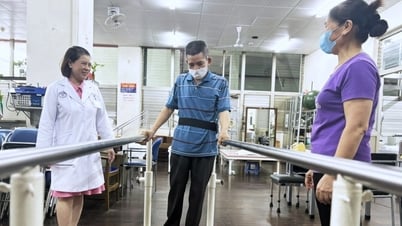

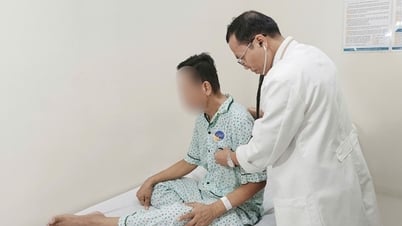



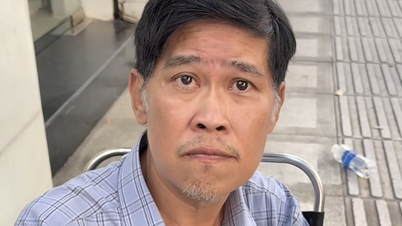

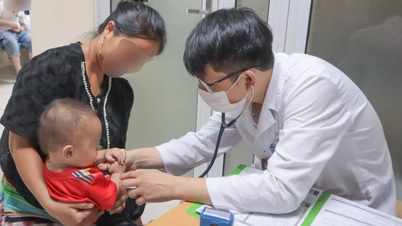


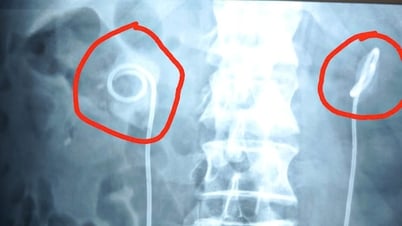










































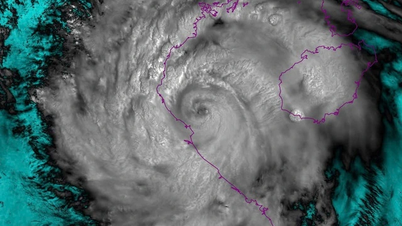





























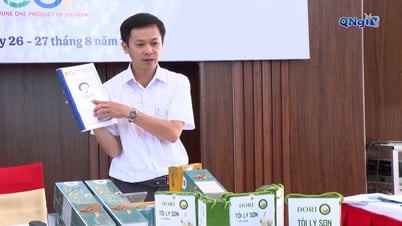









Comment (0)